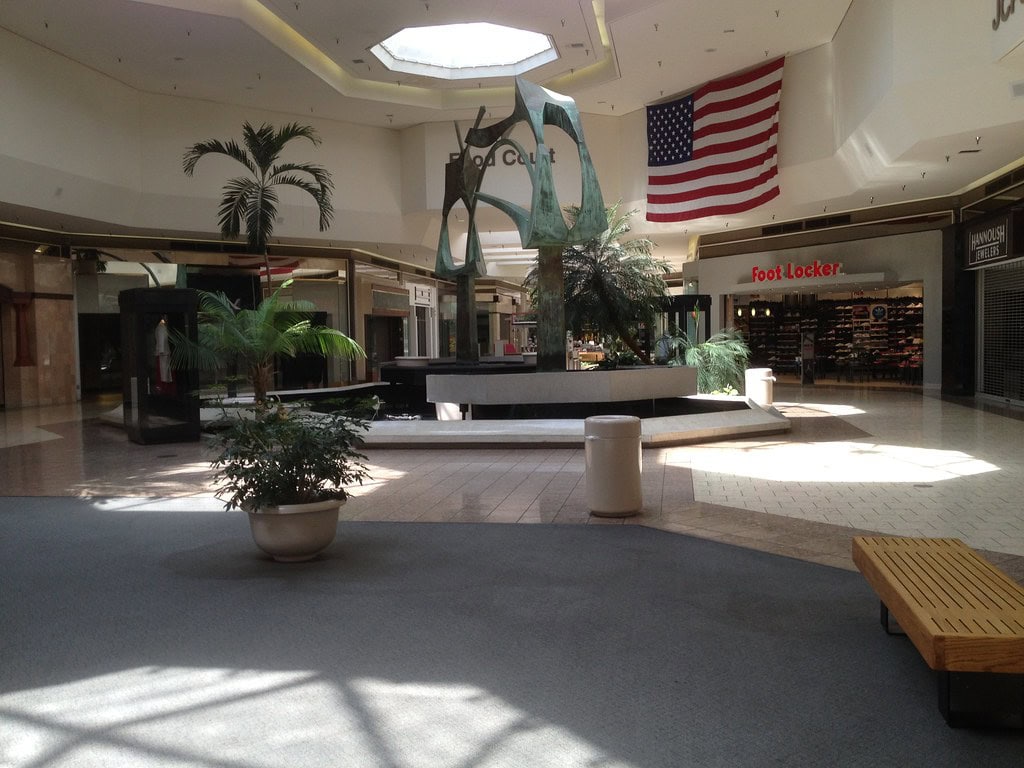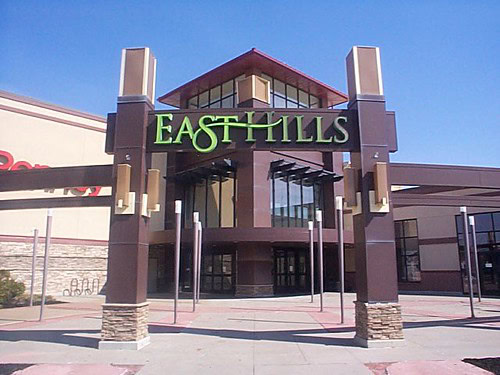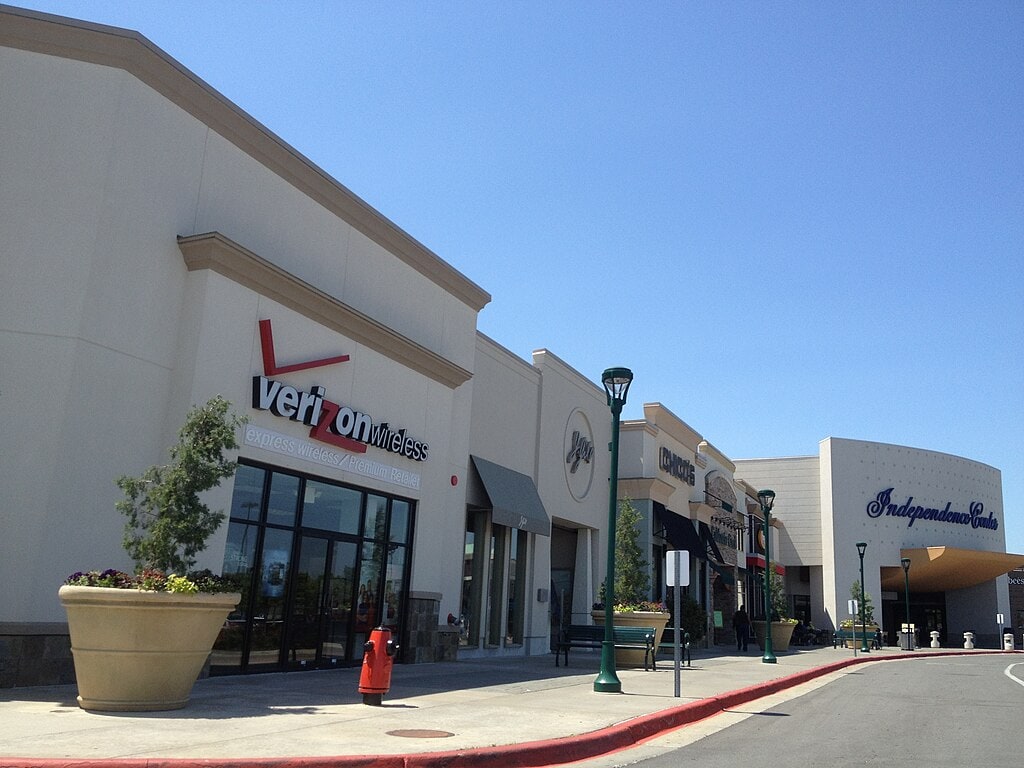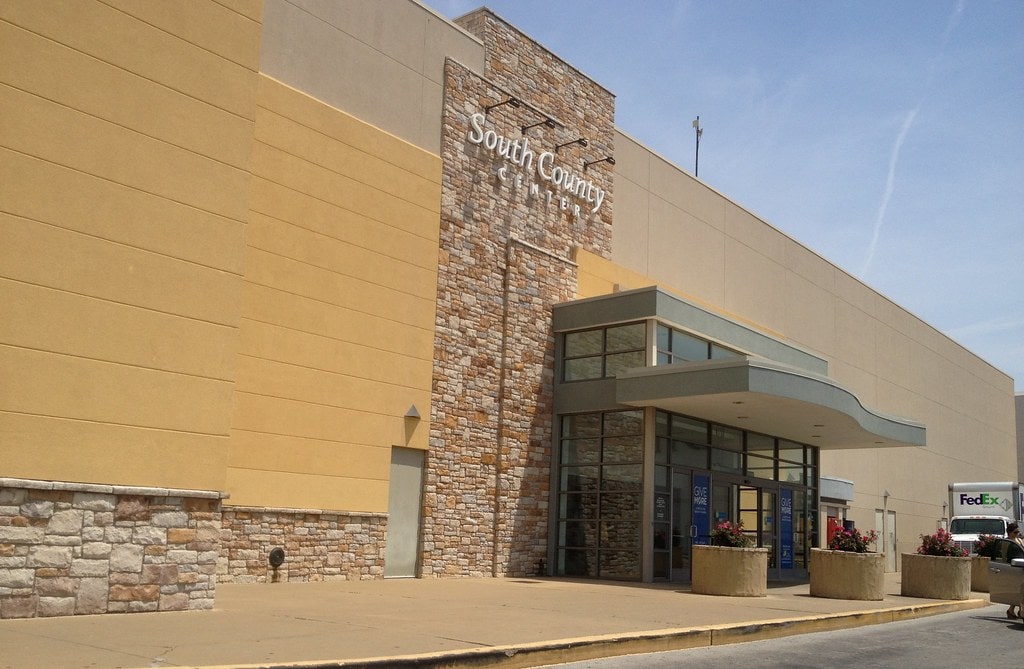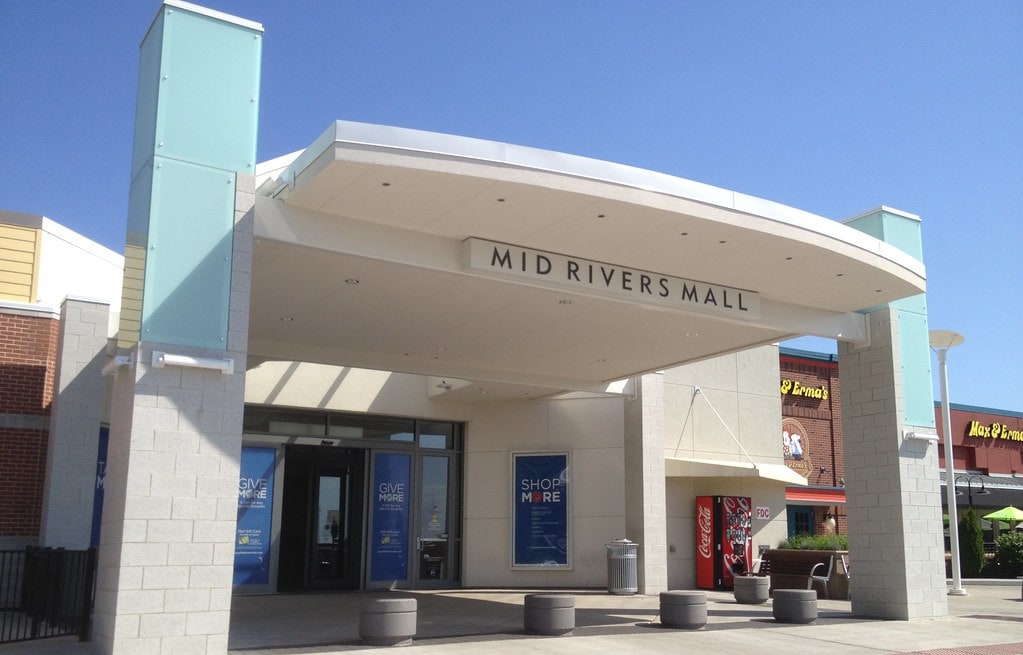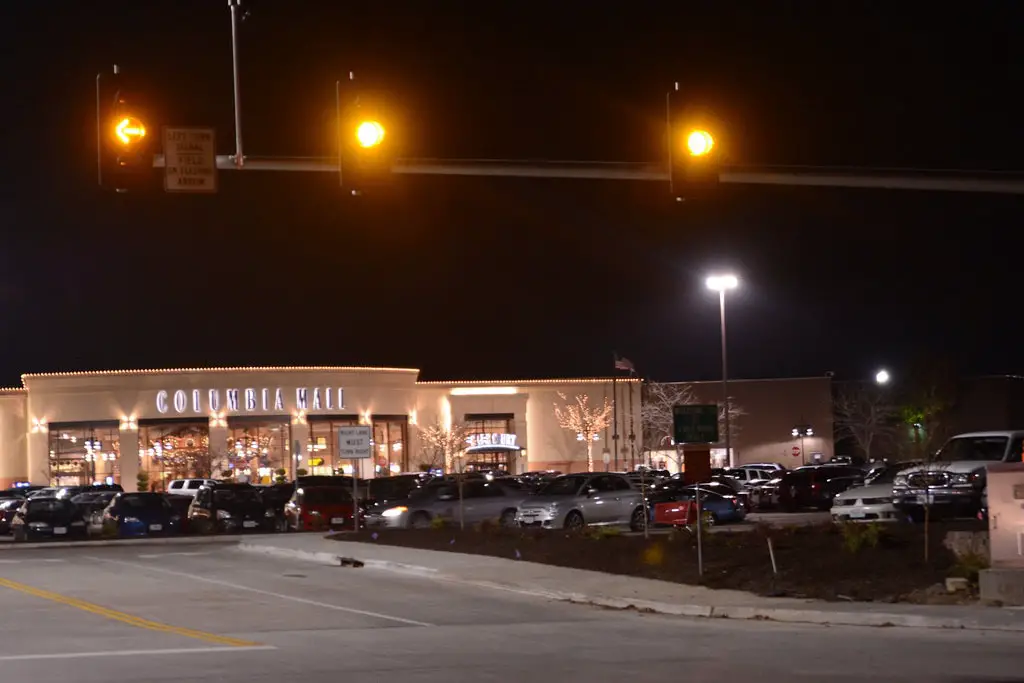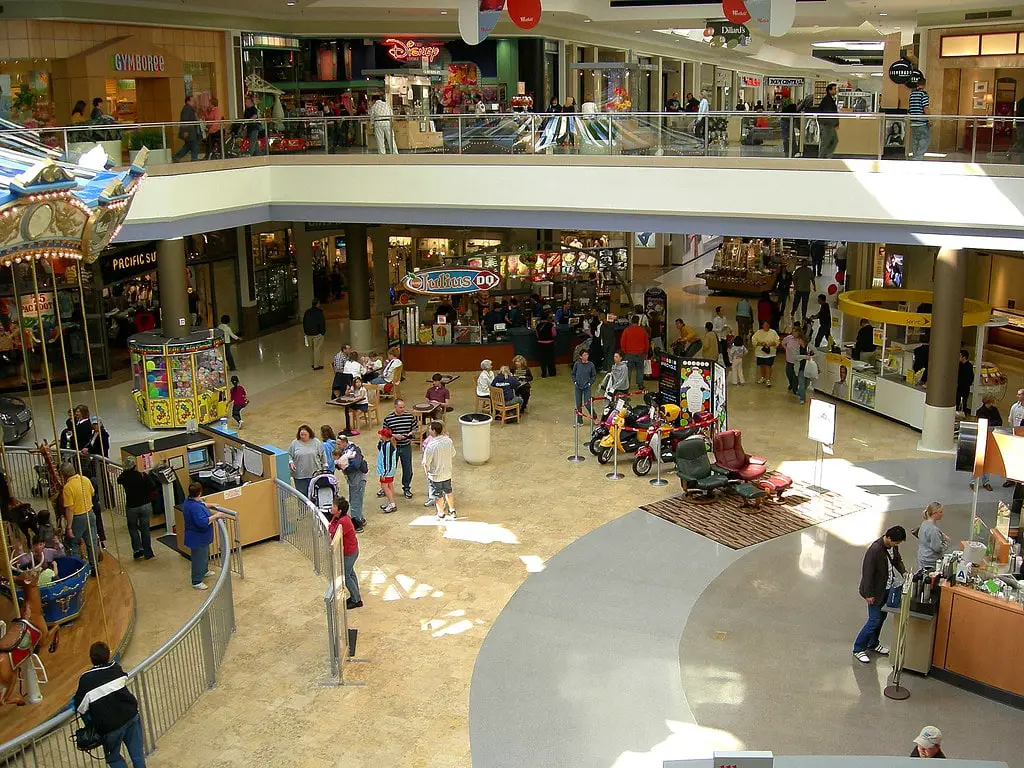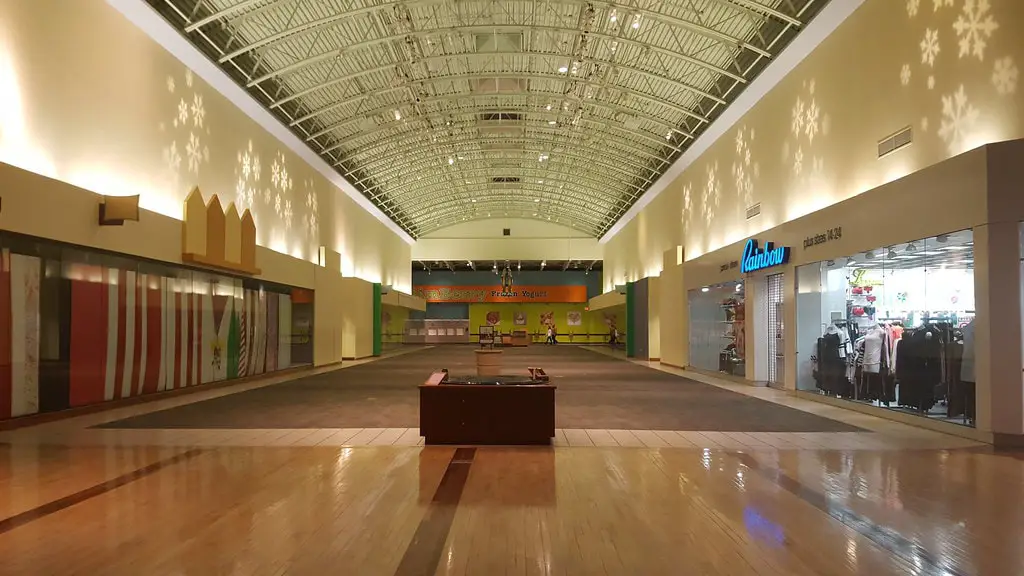The Origins of Antioch Crossing
Antioch Crossing Mall, originally known as Antioch Center, opened its doors in 1956 in Kansas City, Missouri.
It was the first suburban shopping center north of the Missouri River and quickly became a major retail hub.
Built with cars in mind, Antioch Center was designed as an outdoor plaza surrounded by sprawling parking lots—a convenience that drew many shoppers in the post-war era when driving was becoming the norm.
At the heart of the original mall were about 80 stores spread across two levels.
The design was all about accessibility. Shoppers could park close and walk right into the storefronts, making their trips easy and efficient.
Macy’s was one of the early anchor tenants, alongside other popular names like Levitz Furniture and Payless Cashways, a home improvement retailer.
ShowBiz Pizza Place, which later became Chuck E. Cheese’s, also had its first location here, adding to the excitement for families visiting the center.
In 1978, Antioch Center underwent a major renovation.
This upgrade enclosed the open-air plaza, turning it into a more modern, climate-controlled indoor mall.
The change made a big impact—stores had entrances both inside and outside, giving shoppers more options and shielding them from the weather.
The mall quickly became a community staple, especially for locals looking for things to do north of Kansas City, MO.
Rise and Decline of Antioch Center
Through the 1970s and 1980s, Antioch Center flourished as one of Kansas City’s key shopping destinations.
The mall, now enclosed and offering climate-controlled comfort, attracted shoppers from all over the Northland and beyond.
Big names like Macy’s, Sears, and later Dillard’s anchored the mall, while smaller stores filled out the retail landscape.
The addition of Sears in 1974 further strengthened the mall’s appeal, giving residents a one-stop shop for everything from home goods to clothing.
However, by the mid-1990s, things began to change.
Competition from newer, larger malls and the rise of big-box retailers started to chip away at Antioch Center’s customer base.

Nearby developments like Zona Rosa and Metro North Mall began drawing more traffic, and the aging Antioch Center lost relevance.
Store closures started to mount.
By 2005, only a few anchor stores, such as Burlington Coat Factory, Sears, and Catherine’s Plus Sizes, remained.
Inside, many smaller retailers had left, leaving large parts of the mall vacant and dark.
Despite the decline, plans to redevelop the mall were already in motion.
In 2004, developers announced a vision to turn Antioch Center into a mixed-use complex with retail and big-box stores.
The redevelopment was meant to modernize the space and attract new tenants.
But just as things were starting to look up, the economic recession of the late 2000s hit, stalling those efforts.
As a result, the mall sat nearly empty for years, with only a few remaining tenants hanging on.
By 2012, the decision was made to demolish most of the mall, with only Sears and Burlington Coat Factory left standing on the once-bustling property.
Redevelopment and Rebranding as Antioch Crossing
In 2014, the property was renamed Antioch Crossing as a new era of redevelopment began.
The idea was to create an open-air shopping center that would be more aligned with modern retail trends.
Gone was the enclosed mall structure—Antioch Crossing was designed to cater to today’s shoppers, blending national chains with local businesses.
Antioch Redevelopment Partners, LLC, led the transformation, hoping to breathe new life into the area and attract retailers that could serve Northland’s growing population.
One of the first major tenants to open in the new space was Walmart Neighborhood Market, which launched its store in late 2014.
The arrival of other key retailers like Vintage Stock and Goodyear Tire followed this.
The redevelopment aimed to serve the needs of nearby residents while also attracting new customers from the larger Kansas City area.
The location’s convenience—it is at the intersection of Antioch Road, Vivion Road, and Chouteau Trafficway—makes it ideal for businesses looking to capture local and commuter traffic.
By 2017, however, Sears—one of the original anchors of Antioch Center—closed its doors as part of a nationwide closure of 30 stores.
This marked the end of an era, but it didn’t slow the progress of Antioch Crossing.
Antioch Crossing Today: 2023-2024 Update
As of 2024, Antioch Crossing has continued to evolve, becoming a nearly fully leased retail hub in Kansas City’s Northland.
Major tenants like Burlington Coat Factory, Walmart Neighborhood Market, PetSmart, and Goodyear Tire have helped anchor the shopping center, attracting a steady stream of customers.
Starbucks also joined the lineup, offering a convenient spot for coffee on the go.
The variety of stores has made Antioch Crossing a convenient stop for locals, whether they’re grabbing groceries, banking at the nearby Bank of America, or shopping for home goods.
The center’s open-air layout and easy access from major roads like Antioch Road and Vivion Road continue to be big selling points for tenants.
For businesses, the location is ideal, as it taps into a local population of over 100,000 people.
The average household income in the surrounding area is around $55,000, making Antioch Crossing an attractive option for retailers aiming to capture both middle-income shoppers and daily commuters.
The development’s mix of big-box retailers and smaller, locally-owned shops has created a balance that appeals to a broad audience.
Although much of the center is leased, some vacancies remain.
Most notably, the former Sears location, which has been empty since its closure in 2017, still awaits a new tenant.
Despite this, the shopping center remains a key commercial destination in Kansas City’s Northland, benefiting from its location and the ongoing demand for retail space.
Alongside retail development, Antioch Crossing is also a burgeoning residential community.
Notably, The Community Apartments at Antioch Crossing offer living spaces geared toward seniors 55 years and older.
These apartments provide affordable housing and are part of the larger effort to convert Antioch Crossing into a mixed-use community that caters to diverse demographics.

